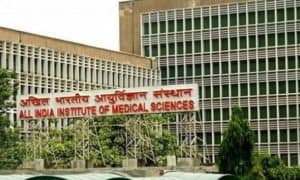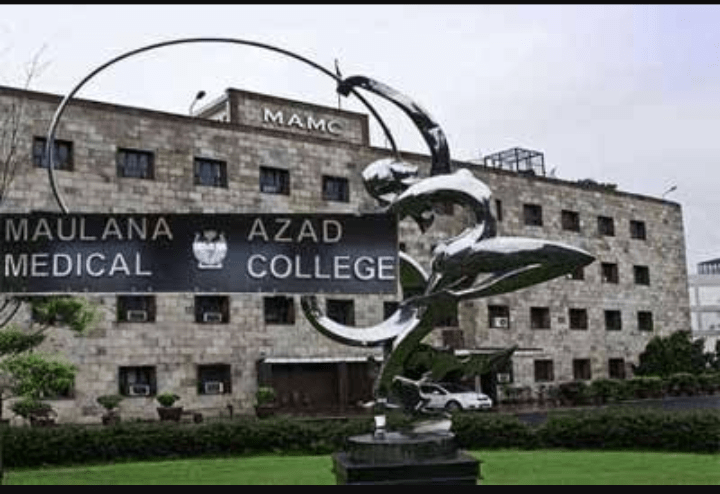Medical colleges can no longer shut the door on students with certain types of disability, as the Medical Council of India sought to do. The High Court has upheld their rights
In August this year, four aspiring medical students with low vision, hearing impairments, specific learning disabilities and disabilities to do with blood disorder were cleared by the Delhi High Court to take the entrance exam for MBBS.
A law coined in 1995 had to be revisited to bring in this much-needed change. The Rights of Person with Disabilities Act guaranteed the right to education till the age of 18, and three per cent reservation in government jobs, among other things. Fast forward to 2007, and India became a signatory to the UN Convention on the Rights of Persons with Disabilities.

Despite these progressive steps, the MCI (Medical Council of India) introduced certain changes in its guidelines just after the Board exam results came in, and before the admissions processes began. These changes disallowed differently abled students to exercise their right to equal opportunity in education, as given to them by the RPWD as amended in 2016. Given this, many differently abled students suddenly found themselves at a disadvantage and went to court.
The RPWD Act states that at least five per cent of the annual intake capacity of medical colleges should be filled by persons with benchmark disability. Section 2(r) of the RPWD Act further defines ‘benchmark disability’ as “a person with not less than forty per cent of a specified disability, where specified disability has not been mentioned in measurable terms and includes a person with disability where specified disability has been defined in measurable terms, as certified by certifying authority.” With this Act in place since 2016, admission into educational institutions ought to have become slightly easier for differently abled students, who already have to deal with a taboo.
However, the MCI’s Medical Counselling Committee recommended that students with more than 40 per cent of certain kinds of disability cannot pursue graduate medical studies. Justice Siddharth Mridul has now ruled that the MCC guidelines “are abhorrent to the principles enshrined in the Constitution.”
“We cannot fault the judicial system for being slow in catching up to the times, they will only solve a problem when it is brought to them. The culprit here is the MCI, for introducing complex and unfair clauses in the application process,” says BP Sharma, father of one of the MBBS aspirants. This guideline understandably changed the game for Sharma’s daughter as she fell under a category detailed by the MCI. She felt as if a door had been slammed in her face just after doing well in her Boards and NEET (National Eligibility Entrance Test).

The young girl had always been proficient in academics and even received confirmed admissions from other prestigious institutions, but she was determined to fight this fight. “I want to be able to do something of meaning in medicine for people with disabilities like me. That means I cannot afford to give up at the very first hurdle.”
As for her parents, they fully supported her decisions when it came to choosing a career path, at every turn. “We could tell that she was going through the whole process, less for herself, and more for the future of others like her. She wants to be an ENT specialist, and also go into medical research, so as to make it easier for those with disabilities to make a space for themselves in the field,” her father said fondly.
Advocate Jeetender Gupta, who represented Sharma’s daughter’s case is of the opinion that the real reason these unnecessary guidelines are imposed is that the institutions are not equipped to effectively teach these children. “Colleges do not have the infrastructure to properly train a student with visual or hearing impairment. For example, most schools and colleges have ramps today, but that is hardly a compensation for the other kinds of impairment that need to be addressed.”
Most medical colleges do not have provisions for lessons in Braille or sign language. He also stressed that a debate about whether or not these students will make effective doctors does not even arise at this stage. “Reasonable restrictions can perhaps be imposed on certain predetermined conditions if and when these children begin to practise medicine. Their abilities and potential cannot be brought into question before they have even been adequately educated,” he explained.
At the graduate studies level, these youngsters are essentially being denied education, which is something they have a right to. Some of these students may not even be interested in becoming a physician, instead, they may want to go into research or radiology, among other options. And what’s more, if they find it hard to cope, they may even drop out. But what is important to note is that that decision cannot lie with the MCI, and these young students cannot be denied their fair shot in the field.
Technology has progressed to accommodate differently abled individuals in the profession of medicine. Stethoscopes have digital displays for the hearing impaired, they’ve been amplified so as to enable people with low hearing to hear the heartbeat of the patient. There are ways to efficiently hold a job in the profession of medicine by inventing solutions for the differently abled, and there are examples for the same across the world. Scotching an unwanted rule preventing students from getting the education they want and deserve is certainly a significant step in the direction of progress.





